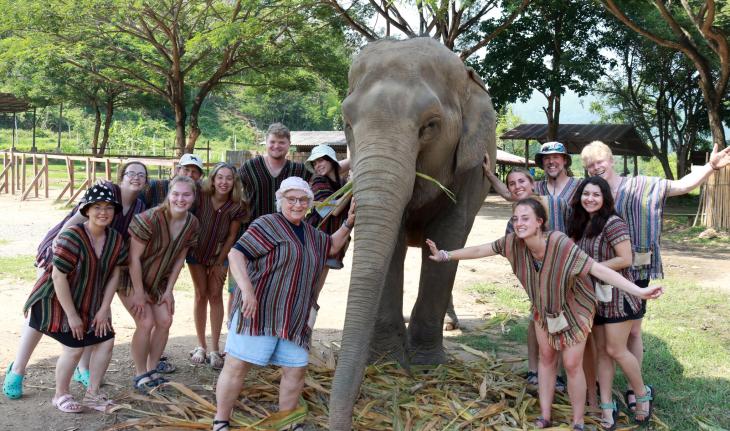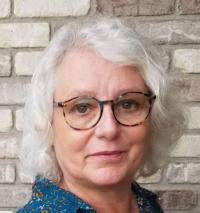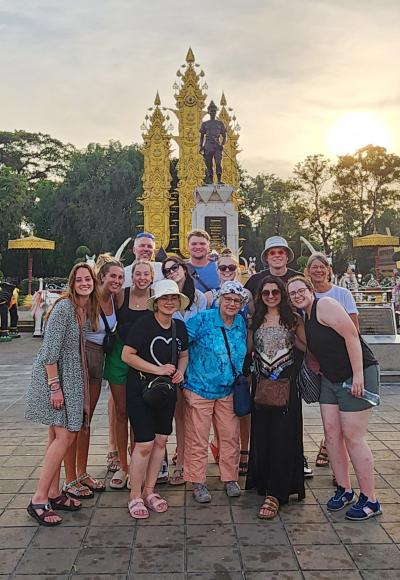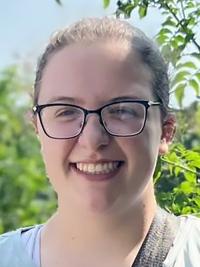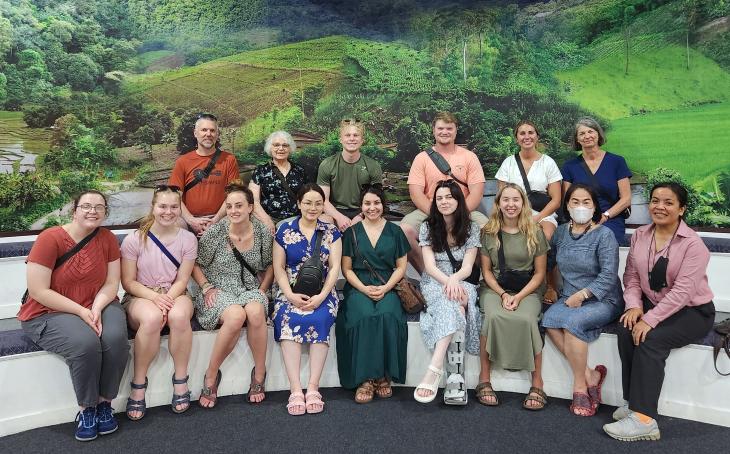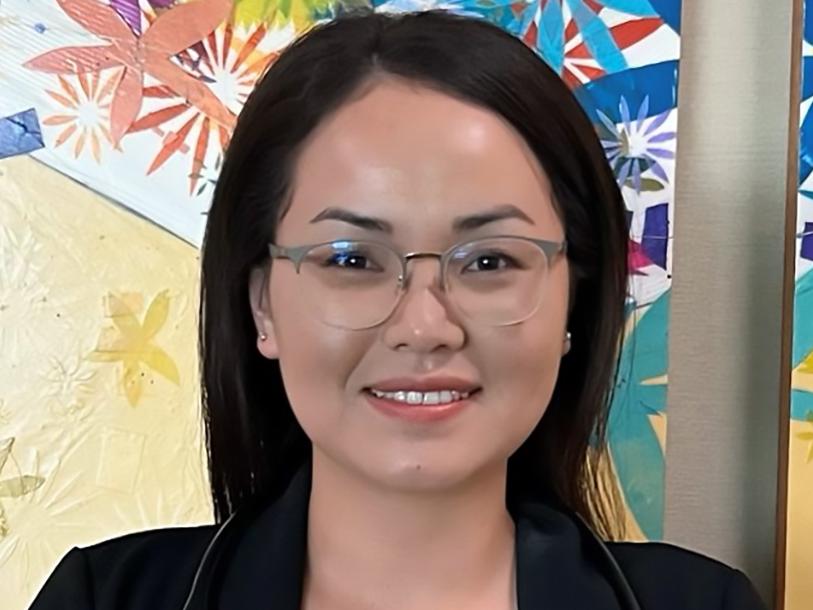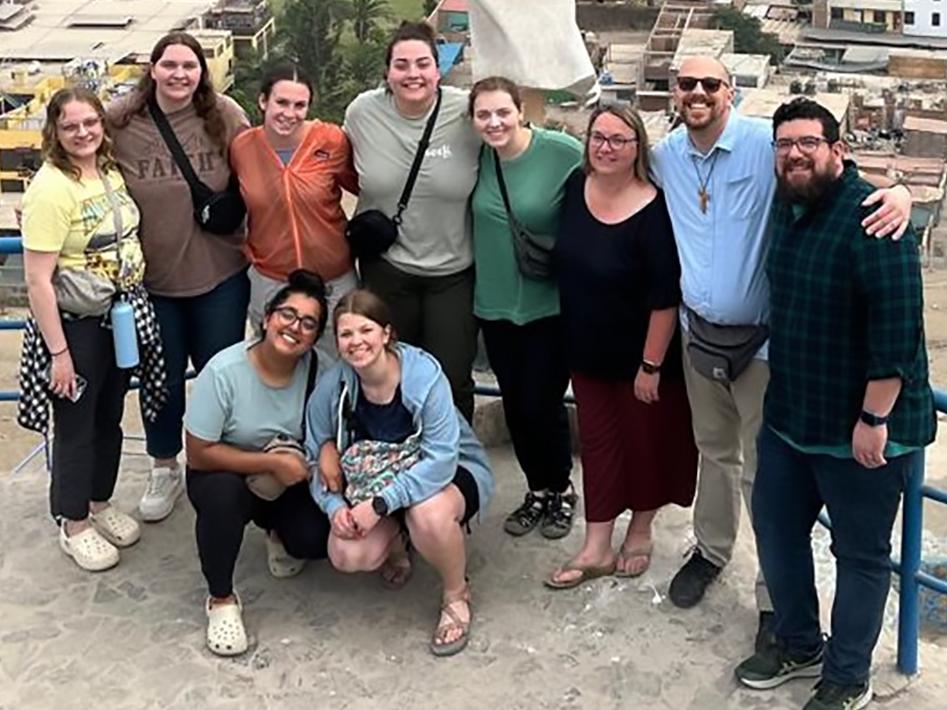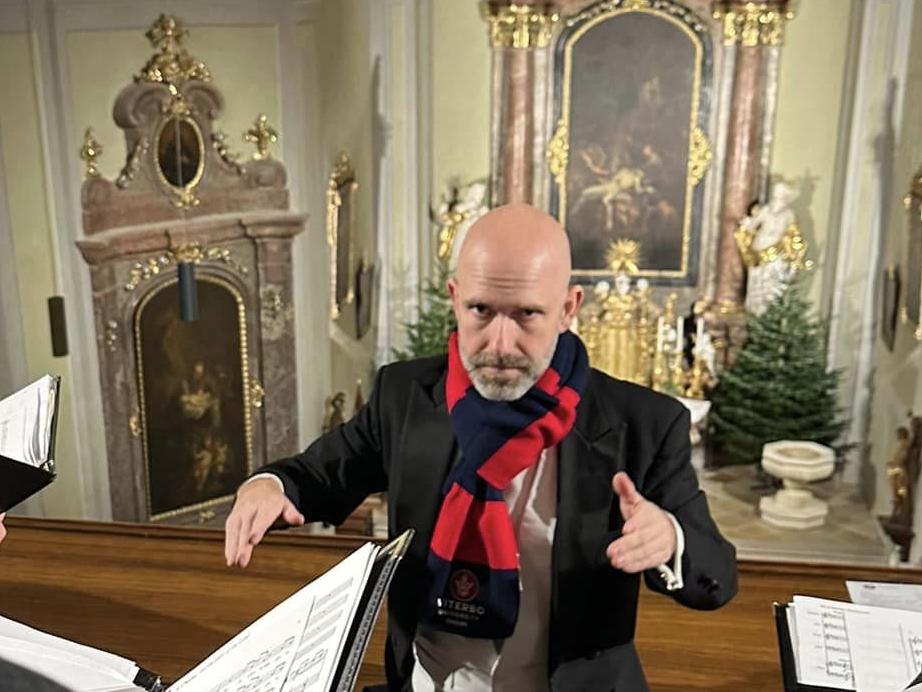For Viterbo nursing students and faculty members, a journey of 8,236 miles and countless moments of awe and discovery began with a single step … taken four years ago by Lin Rauch.
A Viterbo nursing professor since fall 2020, Rauch was teaching nursing at Western Technical College when she decided to apply for an opportunity to expand her understanding of Hmong history and culture: a month-long trip to Thailand.
Rauch was shocked when she was chosen as one of 12 Wisconsin educators for the U.S. Department of Education’s Fulbright-Hays Group Project Abroad program. Doubtful about such a huge undertaking, she completed the application in the middle of the night the day it was due after her husband urged her to take the leap.
“I went wanting to help nursing students build a bridge between our ‘machine model’ of medicine and the healing practices of the Hmong culture, to help a provide better care for a minority segment of our community that has been ignored,” Rauch said.
Rauch’s 2019 trip to Thailand sparked a quest to understand the history of Thailand, particularly as it related to the hill tribes (including the Hmong) and the secret war in Laos for which the U.S. recruited Hmong men and boys as soldiers, which soon turned them and their families into refugees (if they survived the war).
She also developed a passion for sharing that understanding, and before she had completed her first full year at Viterbo, Rauch had found a way to do just that, beyond what she could do in nursing classes. She developed a core-curriculum mission seminar class that would culminate in a trip to Thailand.
While Rauch’s spring semester mission seminar class was open to students of all majors, she ended up with a class made up entirely of nursing students, all but one of them sophomores. The exception was Ta Her, a grad student of Hmong descent in the Doctor of Nursing Practice Degree program who got special permission to take the class.
Rauch hopes her future mission seminar classes will include a variety of majors, especially education and business students. To help with that goal, this spring’s first trip to Thailand included an education faculty member, Matt Johnson.
The two-week trip also included Sheryl Jacobson, a Viterbo nursing faculty member since 1999 who will lead her 10th nursing study abroad trip to Belize next spring. “We’re very blessed in our nursing program to have this breadth of experience, and we train nurses who can go out and consider the hard life experiences some have had.”
Lindsey Krachey was one of the nine sophomore nursing majors who traveled to Thailand, making her first foray to another country. She said she felt well prepared for the trip, thanks to the class sessions throughout the semester. “Our tour guide in Thailand was impressed as to how much knowledge each member of the group knew about the country of Thailand, its history, and the culture there,” she said.
The students visited Hmong, Akha, and Karen villages in the Himalayan foothills, an eye-opening experience for them, Krachey said. “Being able to see how these people are living on a daily basis is something I will always appreciate and never forget. There were individuals who welcomed us into their homes and wanted nothing more than to teach us what their reality looked like.”
Climbing to see the spectacular sunrise view in the Phu Chi Fa national park of the Mekong River valley, the river that claimed the lives of so many Hmong refugees as they fled for their lives from Laos, was “overwhelmingly emotional” for Krachey and others. “It was one of many moments during the journey that instilled in me the importance of learning about the untold stories and passing them on,” Krachey said.
The trip was challenging at times, physically and emotionally, but the lessons it offered and the bonds of friendship it strengthened made those challenges worthwhile, Rauch said.
“The students got a great depth of respect and knowledge of the slow life and learning a different flow, and they got a sense of reverence,” Rauch said. “I watched them grow through their journal entries throughout the class, but then I got to watch them grow and gain perspective in-country. They asked great, insightful questions. One of the most common questions was, ‘Why did I not know this?’”

